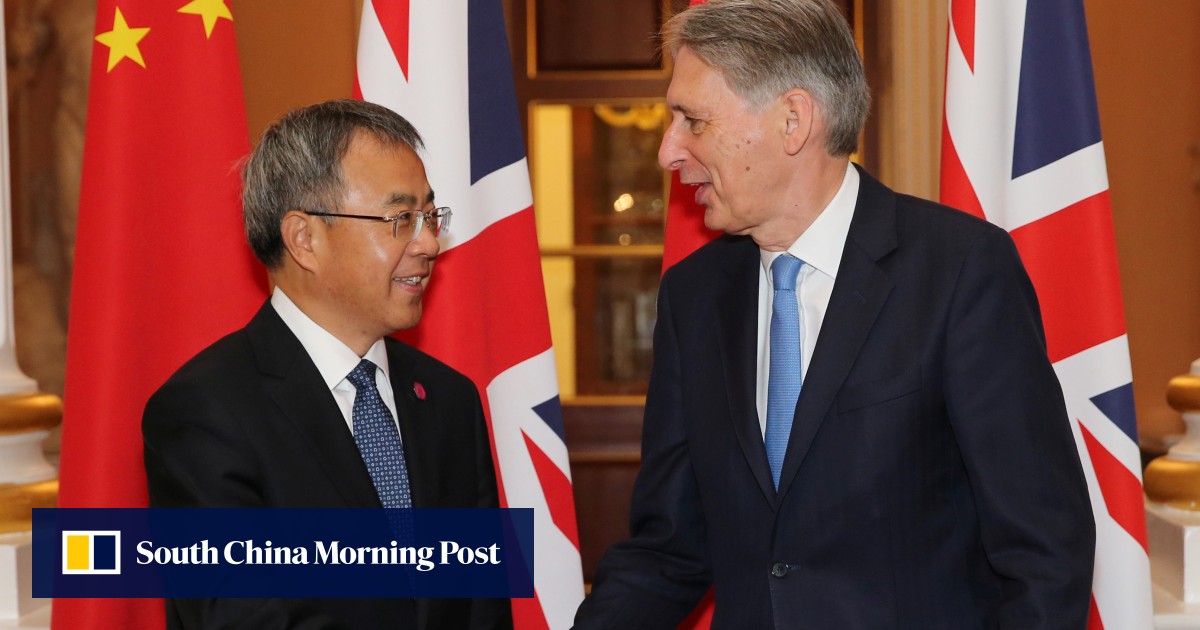A Shared European Nuclear Shield: France's Perspective

Table of Contents
France's Current Nuclear Doctrine and its Rationale
France's independent nuclear deterrent, Force de dissuasion, is a cornerstone of its national security strategy. Developed in the aftermath of the Suez Crisis and the Cold War, it reflects a commitment to national independence and the ability to defend French interests, even against a superior adversary. The doctrine rests on three key principles: deterrence, independence, and minimal deterrence.
- Dissuasion: The core principle is to deter any potential aggressor from attacking France with nuclear weapons through the credible threat of retaliation. This credible threat is the primary means by which France ensures its national security.
- Independence: Maintaining complete control over its nuclear arsenal is paramount. This reflects a deep-seated belief in national sovereignty and the need to safeguard French interests without reliance on external actors. This independence extends to the decision-making process regarding the use of nuclear weapons.
- Minimal Deterrence: France maintains a smaller nuclear arsenal compared to some other nuclear powers, focusing on the necessary minimum to ensure credible deterrence. This approach aims to balance effectiveness with responsible stewardship of nuclear weapons.
The link between national sovereignty and nuclear independence is inextricably intertwined within the French national identity and security policy. A shared European nuclear shield would directly challenge this foundational element of French strategic thinking.
The Potential Benefits of a Shared European Nuclear Shield for France
While a shared European nuclear deterrent presents significant challenges for France, potential advantages also exist. A shared system could offer benefits through burden-sharing and enhanced European security.
- Financial Burden Reduction: Maintaining a nuclear arsenal is extremely expensive. A shared system could significantly reduce the financial strain on individual nations, potentially freeing up resources for other critical security needs. This is a particularly relevant consideration in times of economic uncertainty.
- Strengthened Collective Defense: A collective approach would enhance the overall security of Europe against various threats, including nuclear proliferation and state-sponsored aggression. The combined resources and capabilities would create a more robust deterrent.
- Technological Expertise and Resource Sharing: Pooling resources and expertise across European nations could lead to technological advancements and improvements in nuclear safety and security protocols. This cooperation could boost efficiency and reduce redundancy.
The Challenges and Risks of a Shared European Nuclear Shield from a French Perspective
Despite the potential advantages, significant concerns exist within France regarding a shared European nuclear defense.
- Loss of Control and Sovereignty: The primary concern is the potential loss of control over France's nuclear decision-making process. This is a deeply sensitive issue, directly linked to national pride and strategic autonomy. Sharing control could compromise France's ability to respond decisively to threats.
- Conflicting National Interests: European nations have diverse strategic interests and priorities. Reaching consensus on the use of nuclear weapons, targeting, and operational doctrines could be extremely difficult and potentially lead to gridlock or even conflict.
- Dilution of French Influence: Sharing responsibility for nuclear deterrence could dilute France's influence on European security policy, reducing its strategic weight and voice in matters of vital national interest. This is seen as a potential threat to French geopolitical standing.
The Role of NATO and its Impact on the Shared Shield Concept
The existing NATO nuclear sharing arrangements significantly influence the discussion around a shared European nuclear deterrence. The potential for overlap and even competition between a European-centric structure and NATO’s nuclear umbrella needs careful consideration.
- NATO's Current Role: NATO provides a framework for nuclear deterrence, primarily through the presence of US nuclear weapons in some European countries. A new European system would need to carefully integrate with or differentiate from this existing structure.
- Command Structure: Determining the command structure for a shared European nuclear shield is a critical challenge. Agreeing on a decision-making process that balances national sovereignty with collective action is crucial but difficult.
- Collaboration or Competition?: The relationship between a potential European nuclear shield and NATO is a key element to consider. Will it complement or compete with NATO’s existing nuclear deterrence arrangements?
Conclusion
The prospect of a shared European nuclear shield presents France with a complex dilemma. While there are potential advantages in terms of burden-sharing and enhanced security, the significant risks to national sovereignty and control over its nuclear arsenal cannot be ignored. The core tension lies between strengthening collective security through cooperation and preserving France’s independent ability to protect its national interests. Further discussion and analysis are crucial to fully understand the implications of a shared European nuclear shield. Engaging in open dialogue on the future of European security and exploring various models for a potential shared system is essential for navigating this complex issue and ensuring a more secure future for Europe. Continued discussion and research on the potential of a Shared European Nuclear Shield, including the role of other EU members, is critical for informed decision-making.

Featured Posts
-
 Impact Of Trump Order Ihsaas Ban On Transgender Athletes In Girls Sports
May 10, 2025
Impact Of Trump Order Ihsaas Ban On Transgender Athletes In Girls Sports
May 10, 2025 -
 Trumps Britain Trade Deal What To Expect
May 10, 2025
Trumps Britain Trade Deal What To Expect
May 10, 2025 -
 168 Million Judgment Against Meta The Whats App Spyware Case And Its Aftermath
May 10, 2025
168 Million Judgment Against Meta The Whats App Spyware Case And Its Aftermath
May 10, 2025 -
 Unprovoked Hate A Familys Life Shattered By A Brutal Racist Attack
May 10, 2025
Unprovoked Hate A Familys Life Shattered By A Brutal Racist Attack
May 10, 2025 -
 Chinas Canola Search New Sources After Canada Rift
May 10, 2025
Chinas Canola Search New Sources After Canada Rift
May 10, 2025
